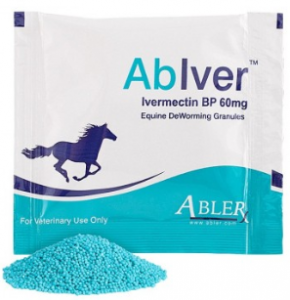We use cookies to make your experience better. To comply with the new e-Privacy directive, we need to ask for your consent to set the cookies. Learn more
Summer Sores in Horses - Prevention is best treatment
How to treat summer sores in horses
A Summer sore is a skin lesion caused by a parasitic attack. Scientifically known as Habronemiasis, summer sores are developed when stable or house flies deposit in the stomach worm larvae on any wound or moist or near moist areas like genitals, ears and eyes. According to Riegel and Hakola, "The infective larvae of the Habronema invade skin wounds and result in a condition commonly referred to as summer sores."
Get rid of the itch!
This kind of infection often causes irritation or an "itch-like" feeling and the horse tends to chew or bite the area and help spread the pain further. Often there is bleeding from the infected area, which leads to a delay in the healing process. The infection often happens during summer because of the activeness of the larvae spreading flies. What adds to it is the warm and humid climate. However, it has been seen that often summer sores are cured during winter or fall only to return in the summer months. Therefore, the treatment of summer sores needs a multi-faceted approach, depending on the weather and severity of the disease.
Deworming is the best prevention
The prevention process along with an effective deworming schedule is the best way to protect horses from summer sore. The best prevention is deworming. Dewormers that include Ivermectin is one of the most effective medicines for the horse. There are other medications too to ease the itchy feeling and irritation. Basic horse husbandry wound care and fly control are another few steps to prevent summer sores.
Another important way to protect the horse from summer sore is by controlling stomach worms.
These stomach worms release larvae in the digestive tract, and these come out through horse's manure to attract flies. Therefore, a two-yearly treatment of Ivermectin is always advisable to treat a horse of such disease. Ivermectin kills both the stomach worm as well as its larvae.

A single dose will eliminate a broad spectrum of parasites at all stages








Validate your login